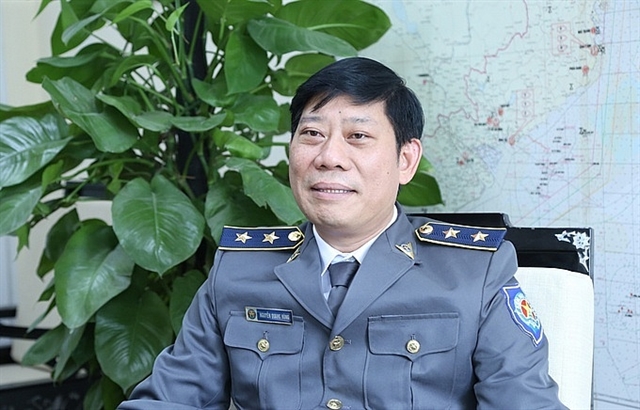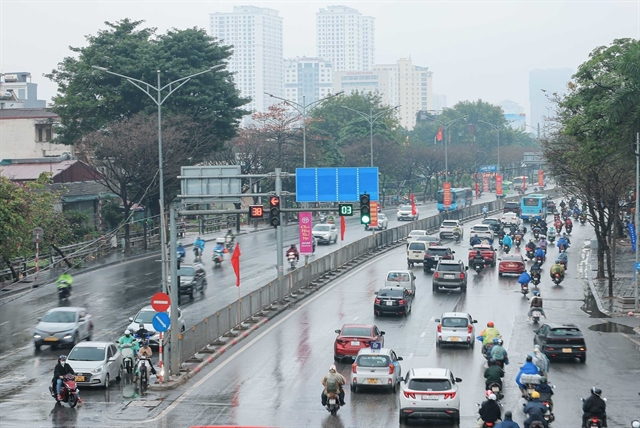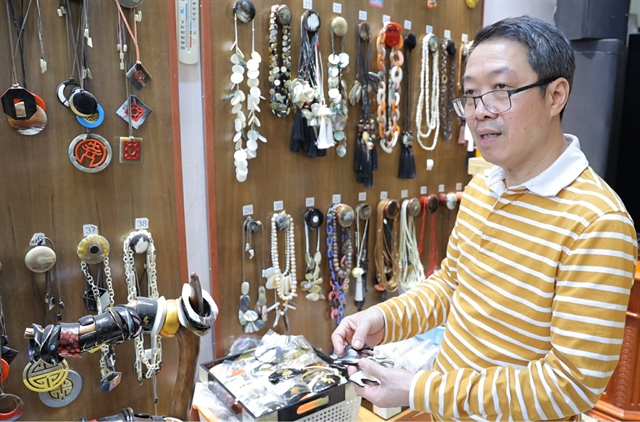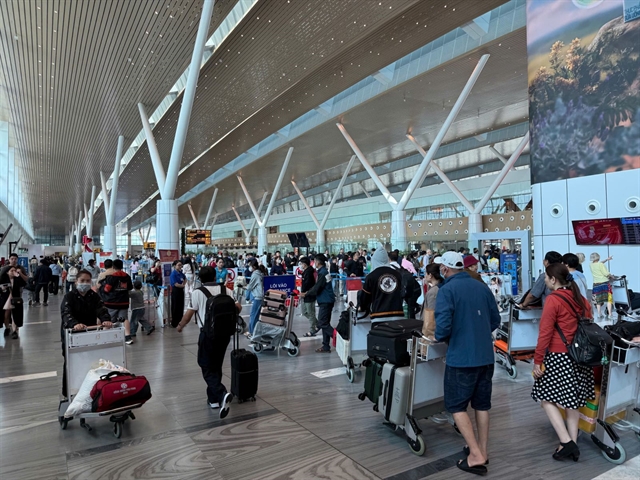 Society
Society

 |
| Nguyễn Quang Hùng, director of Fishery Inspection Department of the Ministry of Agriculture and Rural Development. VNS Photo Tố Như |
Nguyễn Quang Hùng, director of the Fishery Inspection Department of the Ministry of Agriculture and Rural Development, talks with Việt Nam News reporter Tố Như about Việt Nam’s effort to remove the European Community’s “yellow card” on illegal, unreported and unregulated (IUU) fishing.
After more than 6 years of implementation, how do you evaluate the process towards removing the IUU "Yellow Card"?
As of October 23, 2017, we were not sure how many ships we had. The data was only on paper. But six years later, we now have a fully digitised national database.
Before 2017, no one knew where the ships were going, where they were fishing at sea, but now we all know where the ships are going and what area they are fishing in, just by turning on the vessel monitoring system (VMS).
That is a big change.
Compared to other countries, we have achieved this very quickly. Currently 98 per cent of fishing vessels have VMS installed.
Regarding controlling output at fishing ports, before, we just weighed the fish to calculate the price. Now, most of the 83 fishing ports have set up fishing port management boards to control catch yields, fishing vessels arriving and departing, and fishing permits.
Previously, seaports receiving imported aquatic raw materials only quarantined and did not control IUU or container goods, but now they are under control very well.
A few years ago, businesses had basically complied with regulations, but there was still loose management of processing for exports in factories. But now the frequency of goods being returned by the European Community (EC) is very low, proving that we are well controlling food processing for export.
Regarding law enforcement, in the past, fishery inspection was mainly in the fields, rivers and onshore, the sea areas were largely uncontrolled without the presence of law enforcement. But in the past six years, all Việt Nam’s waters have fisheries surveillance, especially since the Prime Minister issued Directive 45 on fisheries inspection, the border guards, coast guards and navy force in all sea areas have ships, so law enforcement on offshore waters has changed greatly.
Last year, the rate of fining increased by 20 times compared to previous years, with more than VNĐ100 billion (US$4 million) of fines levied nation-wide, and fines relating to fisheries inspection alone were more than VNĐ10 billion ($400,000).
Of course, the fine is not an achievement, but it shows that law enforcement has deployed their troops relatively synchronously.
The legal framework also changes a lot. The 2017 Fisheries Law was a major turning point for the fisheries industry towards sustainable development, especially the regulations on fisheries organisation in the region and the world that we have brought into our laws.
Việt Nam is very ready and has signed on to most international treaties and agreements on fisheries. For example, the United Nations treaty on migratory fish stocks and the Food and Agriculture Organisation (FAO)’s Agreement on Port State Measures (PSMA) specifically target IUU fishing.
We have done this very seriously, but some limitations remain due to the small and fragmented traditional fisheries industry.
The EC inspection team plans to come to Việt Nam concerning the removal of IUU "yellow card", how are you preparing for this?
As initially scheduled, the EC inspection delegation was expected to arrive in June, but recently the Ministry of Agriculture and Rural Development had a meeting with partners and the team may come earlier, possibly in mid or late May, however, there is no exact time yet.
In the plan, Việt Nam will have to send the EC a report on progress towards card removal based on the October 2023 inspection results by April. And we are currently finalising the report to send to the team.
Why hasn't the "yellow card" been removed yet? There are opinions that we should not blame the localities, what is your comment on this?
IUU is a story that has been around for a long time. The EC has warned not only Việt Nam, but 24 countries and territories with "yellow card" and "red card". Up to now, there are still nine countries with "yellow card" and "red card". In the region, Cambodia is receiving a "red card" and Việt Nam is imposed a "yellow card".
Countries such as Thailand, Indonesia and South Korea have been able to remove the warnings because their number of fishing vessels is small.
For Thailand, which has about 6,000 vessels, it took nearly 5 years to remove the "yellow card”. Brunei has 2-3 vessels, South Korea with 245 ones and the US’ Hawaii State has only 150, meanwhile the number of vessels of Việt Nam is much bigger.
The determination from the Government and ministries is at highest level.
We are working with the Party Central Office to submit the Secretariat's directive on strengthening the Party's leadership in combatting IUU fishing. Members of the Secretariat and ministries all agreed very strongly. It is expected to be issued in the next few days.
In fact, fishing activities take place at seas, fishing ports and river mouths. Therefore, the most important thing is people's awareness. Currently, only about 10 per cent of our fishermen violate the IUU fishing. The remaining 90 per cent have complied very well. But these 10 per cent greatly affect the 90 per cent of fishermen who comply with the law, impacting the price of fish sold in domestic and exported markets. Therefore, the most important thing is still to disseminate to raise fishermen's awareness.
What is Việt Nam’s biggest difficulty in removing the IUU "yellow card" before the EC team comes?
I think that, in the context of our fisheries industry, it is impossible to have 100 per cent compliance with the regulations. And the EC side also said that it is impossible to be 100 per cent perfect. The problem is to solve the bottlenecks.
If we want to remove the "yellow card", we must stop fishing vessels from violating foreign waters. From now until the team comes, if any other countries report Vietnamese ships violating foreign waters, it will be very difficult to remove the card.
The Prime Minister has directed that the violation of foreign waters, in cases of loss of VMS connection and other law violations, penalties must be strictly imposed.
Thus, the EC will see that we are very serious.
Currently, we impose strict penalties; fishing vessels and fishermen exploiting foreign waters face criminal prosecution and up to 8-9 years in prison.
Thanks to the high deterrent power, from the beginning of the year, only five fishing vessels violated the regulations.
The Party Secretariat’s directive and Prime Minister's telegram also made it very clear that the issue of "yellow card" is not simply a story about shrimp and fish, or a problem of the fisheries industry, but the issue is also the country’s prestige and position in the international arena and in diplomatic relations.
The highest concern of EC is strict fleet management.
To remove the IUU "yellow card" warning, the most important thing is to raise self-awareness of fishermen on international law and regulation compliance, helping them thoroughly understand the importance of combatting IUU fishing. VNS




